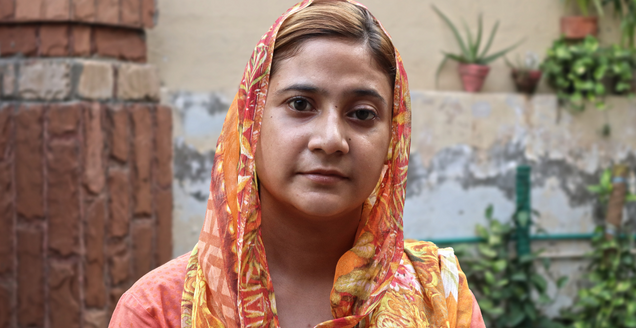The Family Court in Pattoki, Pakistan, has officially voided the involuntary marriage of Reeha Saleem, a 17-year-old Christian student from grade 8 who was abducted in 2019 while returning from school. She was forcibly converted to Islam and coerced into marrying her Muslim neighbor.
In its judicial ruling, the court determined that Reeha had not consented to the marriage; rather, her signature on the marriage documents had been compelled under duress during her period of captivity. Throughout the trial, Reeha courageously affirmed her Christian beliefs and categorically refuted any claims of a voluntary conversion to Islam. Despite multiple court summonses, the defendant, Muhammad Abbas, consistently failed to appear, prompting the court to proceed with a judgment in his absence. This decision marks a significant reaffirmation of justice and Reeha’s fundamental rights.
After the court’s verdict, Reeha’s mother, Parveen Saleem, expressed with relief and gratitude, saying, “The ordeal we’ve endured is beyond words. We were compelled to seek refuge to protect ourselves from continuous threats by the abductor, who demanded the return of ‘his wife.’ This harrowing period also brought an abrupt halt to Reeha’s education. With the court’s decision to annul this unlawful marriage, I am hopeful that Reeha can resume her studies and we can begin to rebuild our lives. I am profoundly thankful to ADF International and their allied lawyer, Sumera Shafique, for securing justice for Reeha. I pray fervently that our nation will eradicate such abuses.”
Tehmina Arora, Director of Advocacy, Asia for ADF International, expressed her profound joy at the decision: “We are thrilled that the court has recognized the injustice of Reeha’s forced marriage, allowing her the opportunity to recover from this traumatic experience.”
Arora continued, “It is unacceptable for any girl to endure the terrors of abduction and forced marriage, and to be coerced into renouncing their faith. The annulment of Reeha’s marriage signifies a crucial advancement for the countless women and girls in Pakistan facing similar trials. We urge the government of Pakistan to take decisive action by setting the legal minimum age for marriage at 18 nationwide, as a fundamental step towards preventing these grave injustices.”
In Pakistan, a distressing trend underscores this global crisis: annually, over 1,000 girls from religious minorities are compelled into both conversion and marriage. Under Sharia law, the permissible marriage age begins at puberty, which is notably lower than the secular legal minimums set between 16 and 18 years across various Pakistani regions. Tragically, when these forced conversions occur, the girls’ parents are frequently powerless to prevent these grave violations of their daughters’ rights.
“These forced conversions and marriages are not merely breaches of law; they are egregious violations of the fundamental human rights of these young women,” stated Arora. “Moreover, the pervasive fear for their own safety and that of their family members often silences these women and girls, preventing them from speaking out against their abductors.” She emphasized that in Pakistan, where such abuses are rampant, the government is presented with a critical opportunity to enact change through the implementation of a uniform marriage age and other vital legal protections.
